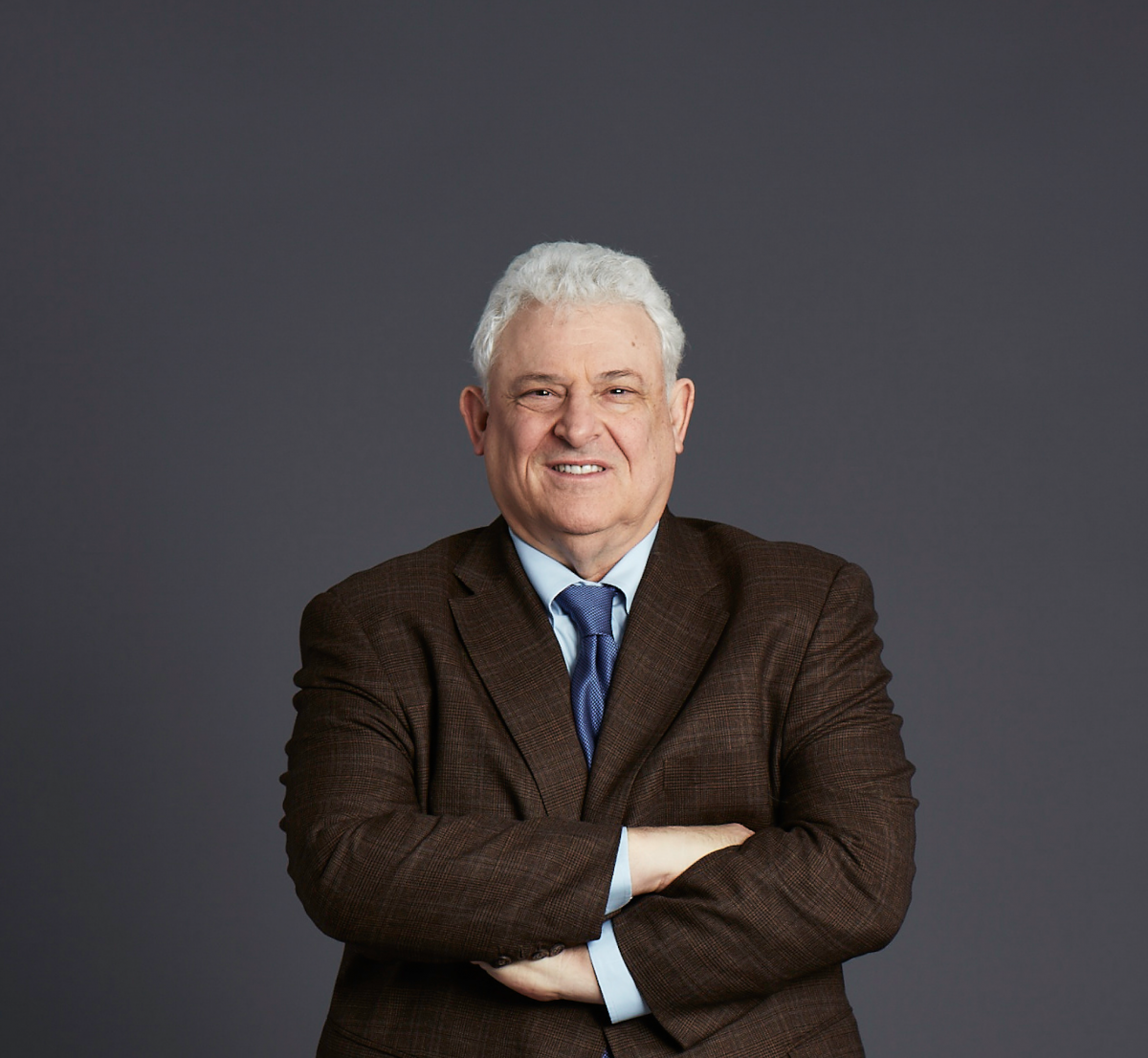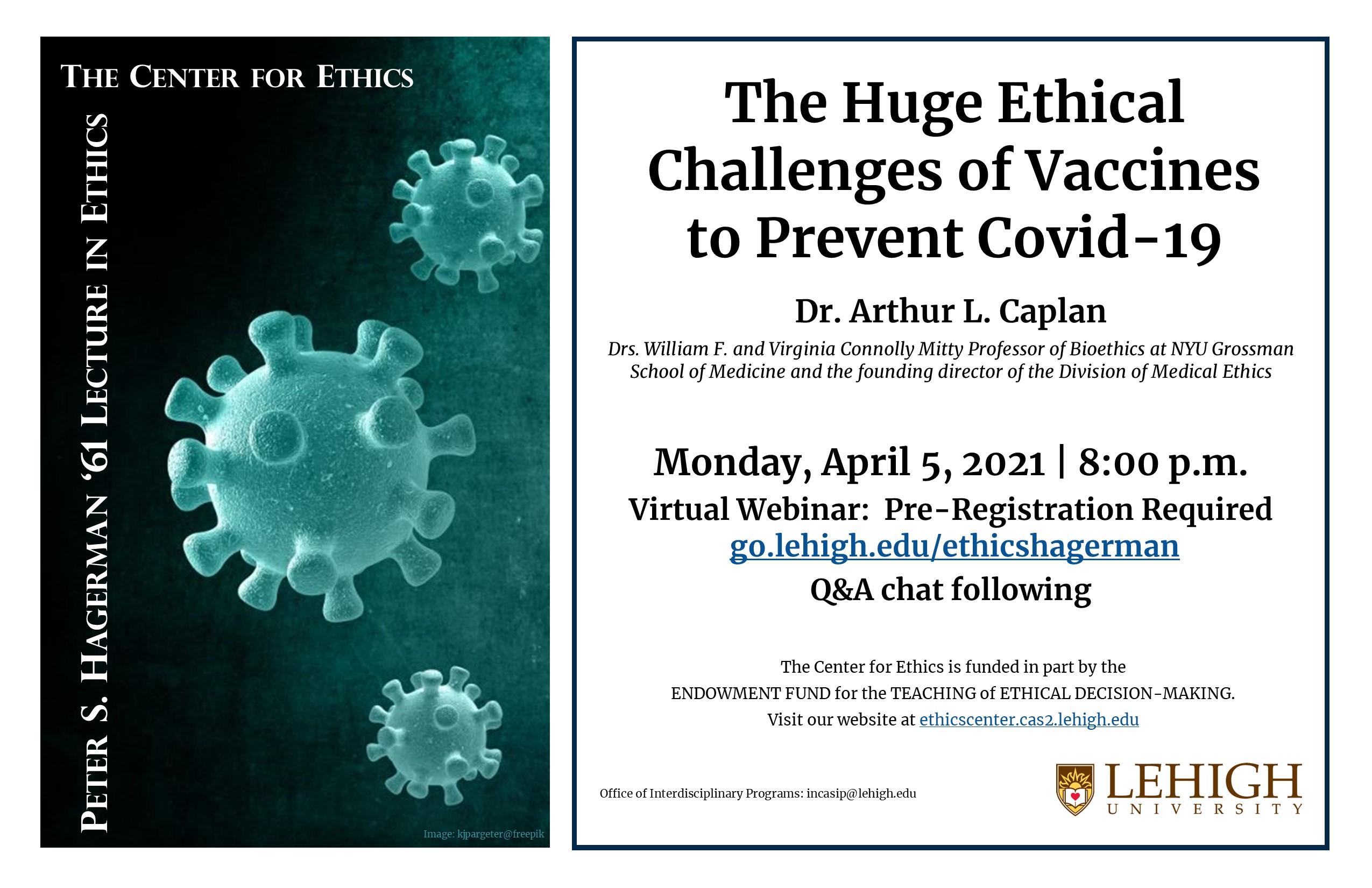Dr. Caplan's Biography
 Currently the Drs. William F and Virginia Connolly Mitty Professor and founding head of the Division of Medical Ethics at NYU School of Medicine in New York City.
Currently the Drs. William F and Virginia Connolly Mitty Professor and founding head of the Division of Medical Ethics at NYU School of Medicine in New York City.
Prior to coming to NYU School of Medicine, Dr. Caplan was the Sidney D. Caplan Professor of Bioethics at the University of Pennsylvania Perelman School of Medicine in Philadelphia, where he created the Center for Bioethics and the Department of Medical Ethics. Caplan has also taught at the University of Minnesota, where he founded the Center for Biomedical Ethics, the University of Pittsburgh, and Columbia University. He received his PhD from Columbia University.
Dr. Caplan is the author or editor of thirty-five books and over 800 papers in peer reviewed journals. His most recent books are Vaccination Ethics and Policy, (MIT Press, 2017 with Jason Schwartz) and, Getting to Good: Research Integrity in Biomedicine Springer, 2018 with Barbara Redman).
He has served on a number of national and international committees including as the chair of the National Cancer Institute Biobanking Ethics Working Group, chair of the Advisory Committee to the United Nations on Human Cloning; chair of the Advisory Committee to the Department of Health and Human Services on Blood Safety and Availability. He has also served on the Presidential Advisory Committee on Gulf War Illnesses, the special advisory committee to the International Olympic Committee on genetics and gene therapy, the Special Advisory Panel to the National Institutes of Mental Health on Human Experimentation on Vulnerable Subjects, the Wellcome Trust Advisory Panel on Research in Humanitarian Crises, and the co-director of the Joint Council of Europe/United Nations Study on Trafficking in Organs and Body Parts. He is the co-founder and a member of the ge2p2 global foundation.
Caplan has served since 2015 as the chairperson of the Compassionate Use Advisory Committee (CompAC), an independent group of internationally recognized medical experts, bioethicists and patient representatives which advises Johnson & Johnson’s Janssen Pharmaceuticals about requests for compassionate use of some of its investigational medicines.
Dr. Caplan is a regular commentator on bioethics and health care issues for WebMD/Medscape, WGBH radio in Boston, WOR radio in New York City and CNN. He appears frequently as a guest and commentator on various other national and international media outlets.
Dr. Caplan is the recipient of many awards and honors including the McGovern Medal of the American Medical Writers Association and the Franklin Award from the City of Philadelphia. He was a USA Today 2001 “Person of the Year and was described as one of the ten most influential people in science by Discover magazine in 2008. He has also been honored as one of the fifty most influential people in American health care by Modern Health Care magazine, one of the ten most influential people in America in biotechnology by the National Journal, one of the ten most influential people in the ethics of biotechnology by the editors of Nature Biotechnology, and one of the 100 most influential people in biotechnology by Scientific American magazine.
During the Covid-19 pandemic, he co-directs an advisory group on sports and recreation for the US Conference of Mayors, created a working group on coronavirus vaccine challenge studies, developed an ethical framework for distributing drugs and vaccines for J&J, helped develop rationing policies for NYU LMC and many other health systems, is a member of the WHO advisory committee on Covid, ethics and experimental drugs/vaccines, helped set policy for WIRB/WCG for research studies He was an advisor to Moderna. And serves on the NCAA Sports and Covid committee.
He received the Patricia Price Browne Prize in Biomedical Ethics for 2011. In 2014 he was selected to receive the Public Service Award from the National Science Foundation/National Science Board, which honors individuals and groups that have made substantial contributions to increasing public understanding of science and engineering in the United States. In 2016 the National Organization for Rare Disorders (NORD) honored him with their Rare Impact Award and hFood and Drug Law Institute’s Distinguished Service Leadership Award. In 2019 he was honored by the Food and Drug Administration’s, Reagan/Udall Foundation with its Innovation Award. He holds seven honorary degrees from colleges and medical schools.

 Currently the Drs. William F and Virginia Connolly Mitty Professor and founding head of the Division of Medical Ethics at NYU School of Medicine in New York City.
Currently the Drs. William F and Virginia Connolly Mitty Professor and founding head of the Division of Medical Ethics at NYU School of Medicine in New York City.